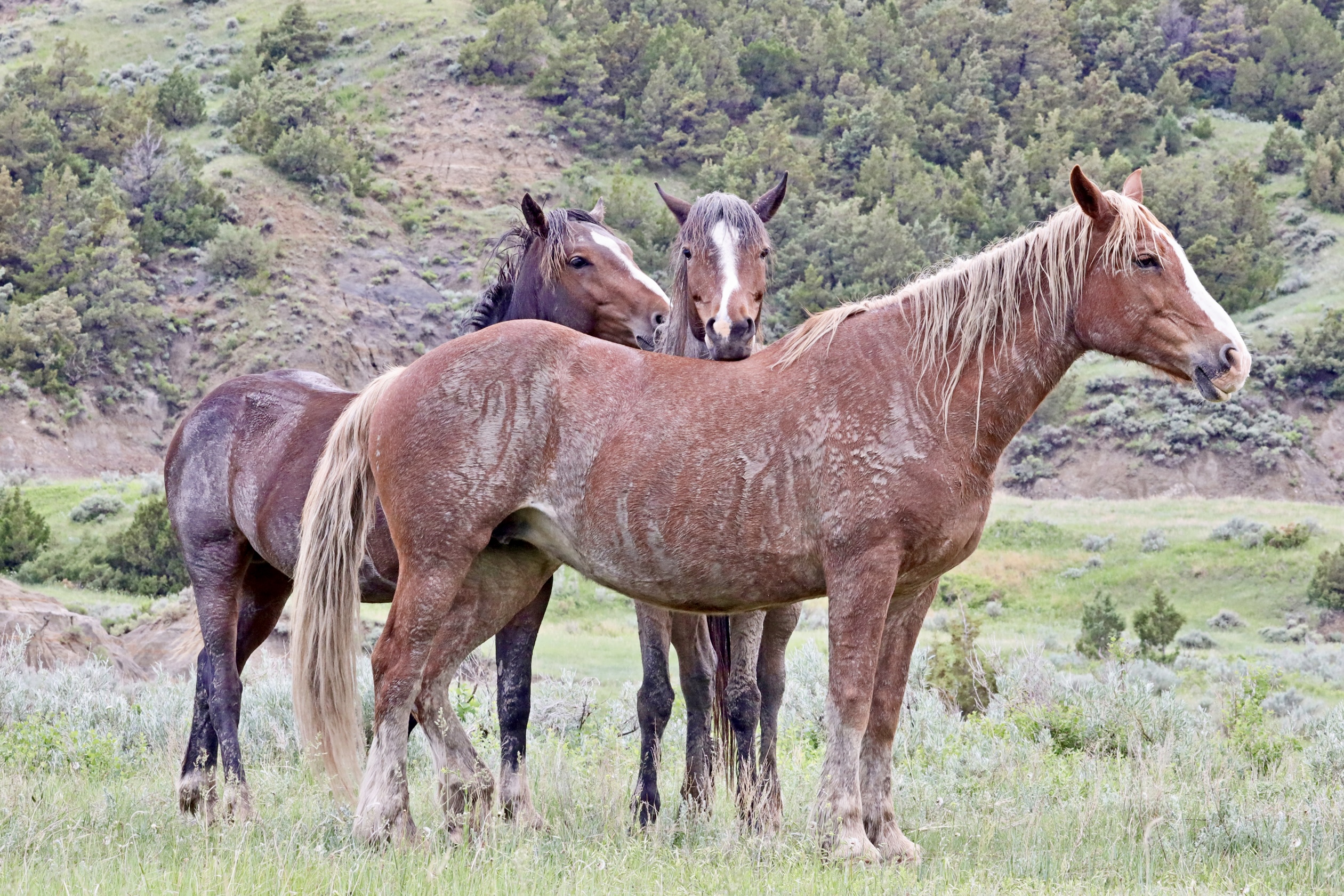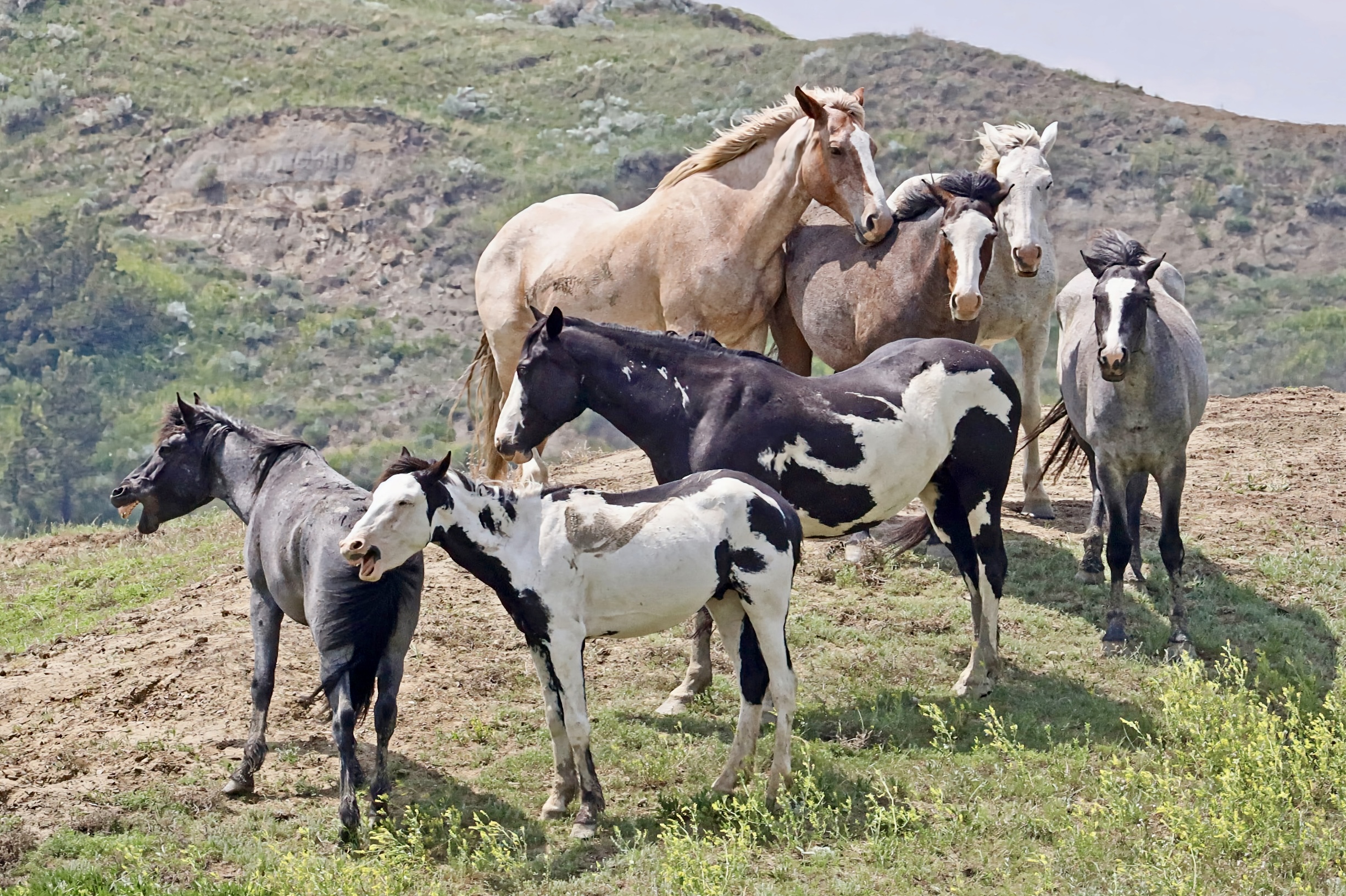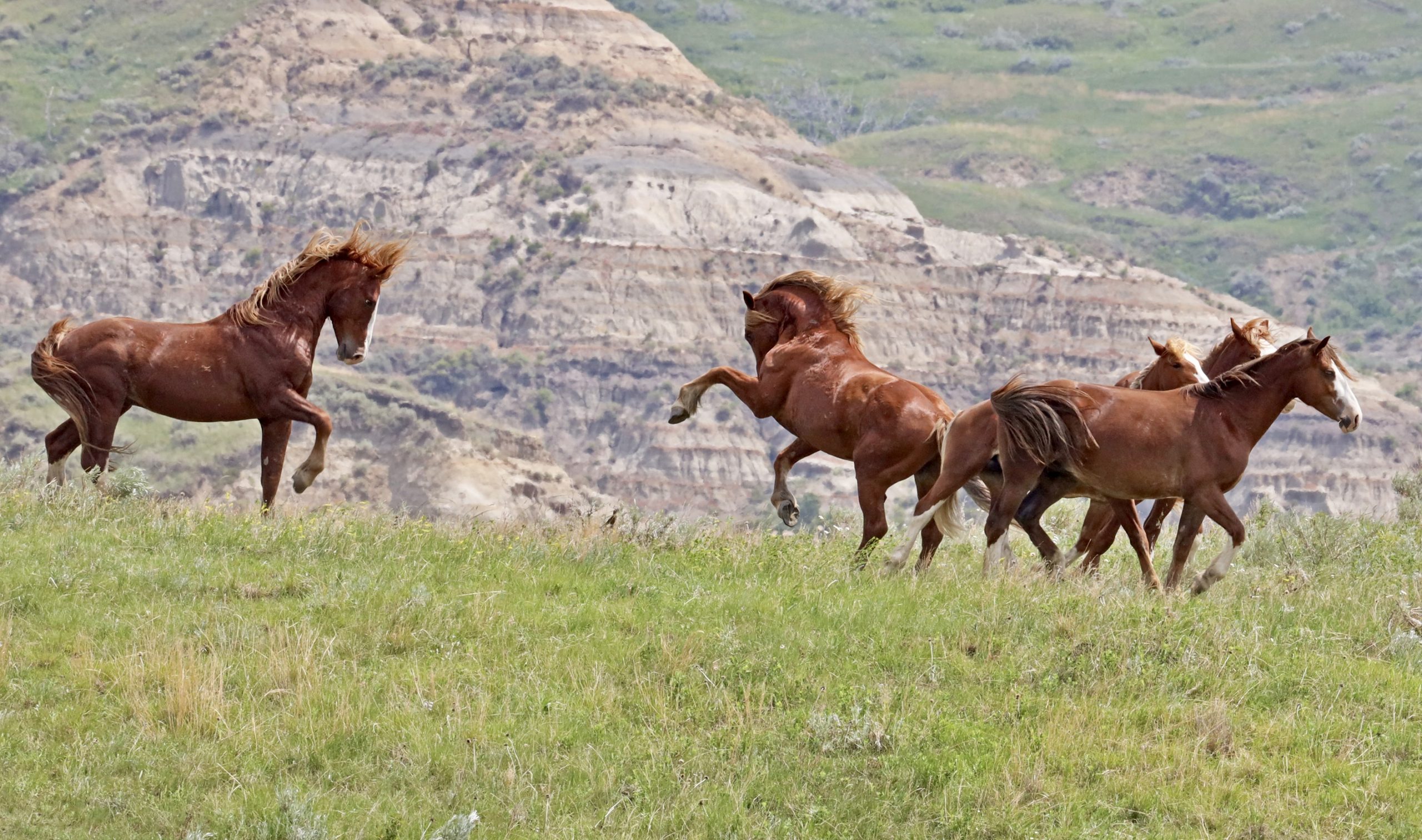Hopeful news as Senator John Hoeven announced that he has secured a commitment from the National Park Service (NPS) to maintain the wild horses at Theodore Roosevelt National Park (TRNP).
The NPS will immediately terminate its proposed removal of horses at TRNP under the environmental assessment (EA) process initiated in 2022, and as a result, the existing management plan for the wild horses will remain in place. This will allow for a healthy herd of wild horses to be maintained at the park, managed in a way to support genetic diversity among the herd and preserve the park’s natural resources.

“These wild horses are emblematic of President Theodore Roosevelt’s time in North Dakota, a formative experience that shaped his presidency and lasting legacy,” said Senator Hoeven. “Given the broad public support for maintaining the wild horses at Theodore Roosevelt National Park, as well as the measure we passed through Congress, this is the right call by NPS. We appreciate Director Sams, Regional Director Frost and Superintendent Richman for working with us on this priority and being responsive to the input we and the public provided.”

As symbols of American freedom, mustangs hold a special place in the hearts of many and are an integral part of U.S. heritage. This recent development is a step in the right direction, but further actions are necessary. Over 17,000 In Defense of Animals (IDA) supporters wrote to the park service calling for the mustangs to remain and be reclassified as native wildlife rather than livestock, recognizing their rightful status and promoting conservation efforts that reflect their ecological and cultural significance.

“We are heartened by the National Park Service’s commitment to keep majestic mustangs, but the entire current herd of wild horses must remain in Theodore Roosevelt National Park to protect their health and genetic viability,” said Fleur Dawes, Communications Director at IDA. “Additionally, the park’s incorrect designation of wild horses as ‘livestock’ must be changed back to the original correct classification of ‘wildlife.’ We will continue to advocate for wild animals to be protected on public lands where they belong, ensuring their freedom and survival for future generations.”

Park visitors have also remarked about the large, open, running sores on many of the wild horse mares caused by the National Park Service’s GonaCon sterilization drug use, which was uncovered through a Freedom of Information Act request. PZP is the darting method that should be used for wild horse sterilization, not GonaCon. As a result of the experimental use of GonaCon since 2009, 79% of mares in the park who were initially treated with GonaCon and given a booster in 2013 have not regained fertility.
Across the country, thousands of wild horses are being violently rounded up and corralled in horrendous conditions to make way for private, public-subsidized livestock ranching.
Concerned citizens can contact Secretary of the Interior Deb Haaland at (202) 208-3100 and request that the National Park Service, the Forest Service, and the Bureau of Land Management immediately discontinue the use of GonaCon.